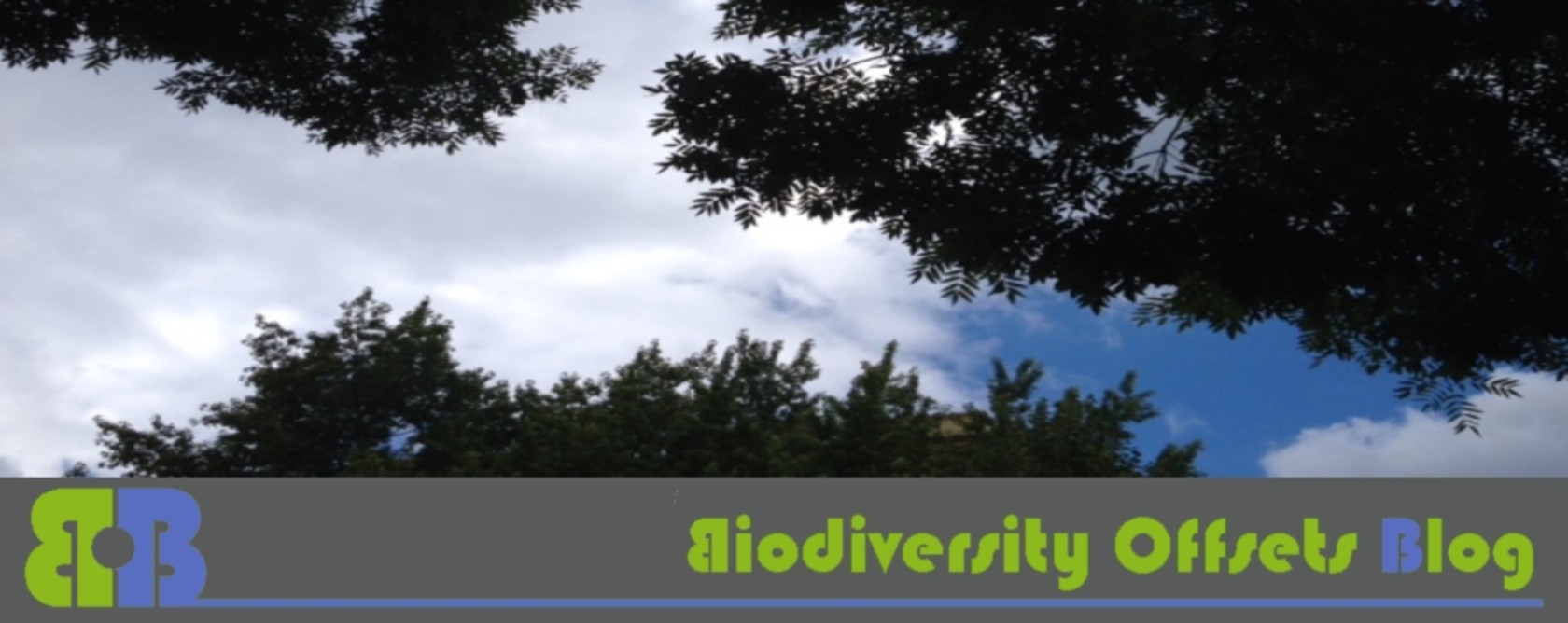This is the second part of a guest post series by Nuno Gaspar de Oliveira who works as.consultant and advisor in Esporão, a portuguese main wine and olive oil company, in the area of Strategic Management for sustainability using ‘Business Ecosystems’ models,
This guest post has previously been published on LinkedIn. It is the expression of the author’s thoughts and experiences and as such is acknowledged as a fruitful contribution to the discussion on biodiversity offsets. If you want to react or clarify your own position (underpin or disprove), please leave a reply below!
Rousseau’s thinking lead to a need to assess how this relatively new concepts of land ownership was affecting the society and thereby, the whole western economic system.
Property rights and serfdom was on the basis for the pre-liberal thinking on the role of natural capital and human well-being. In the XVIIIth century, a crucial man to nowadays finance and economics, Adam Smith released one of his most proclaimed works, ‘An Inquiry into the Nature and Causes of the Wealth of Nations’ (1776), formerly called simply ‘The Wealth of Nations’. In this philosophical essay Smith establishes some of the most popular theories that supported classic liberalism, strongly influenced by key philosophers like John Locke (e.g. ‘An Essay Concerning Human Understanding’, 1690), David Hume (e.g. ‘Essays, Moral, Political, and Literary’, 1742) and Edmund Burke (e.g. ‘A Vindication of Natural Society: A View of the Miseries and Evils Arising to Mankind’, 1756). Smith dwelled boldly between the deep domains of human nature that where in fact the foundations for the development of‘utilitarianism’ and ‘free market’ theories. According to the professor of economics V. L. Smith (1998):
“Adam Smith’s two major works are based on apparently contradictory themes in human nature: non-cooperative self-interest and other-regarding sympathy. These views are not contradictory if we distinguish impersonal market exchange and personal exchange — Noncooperative behaviour in the former maximizes the gains from exchange, the basis of specialization and wealth creation. Cooperative behaviour in personal exchange is based on reciprocity, trading gifts, favours, and assistance across time, which maximizes the gains from social exchange. That people can be both cooperative and noncooperative is corroborated in laboratory experiments and is postulated to stem from a self-interested propensity for exchange in markets and friendships.”
The infamous argument of the ‘invisible hand’ has been object of both philosophical (Bronk, 1998; Fleischacker, 2002) and economics analysis (Stiglitz, 1991; Kennedy, 2009) and rages from quite controversial to absolute truism. Albeit the ‘Socratic’ discussion about the true meaning of Smith’s words supporting ‘The Wealth of Nations’, there’s one particular passage, probably inspired by Rousseau, that becomes quintessential to the ideas of Schumacher (1973) and The Club of Rome (e.g., Meadows et al., 1972), inter alia:
“As soon as the land of any country has all become private property, the landlords, like all other men, love to reap where they never sowed, anddemand a rent even for its natural produce.”
So, to some extent, there was an overall agreement that natural capital was crucial to any major philosophical, political or economic change and on the other hand, the main hurdle opposing to human unlimited desire for endless growth, somehow an aftershock of Thomas Malthus affirmation in ‘An Essay on The Principle of Population’ (1798) that population, when unchecked,increases in a geometrical ratio, while subsistence, increases only in an arithmetical ratio.
This ‘linear’ thinking lead to a wide range of political and economic distortions, many of which still endure. Nowadays, as a result of the turmoil evolution of philosophical, political, economic and societal multiple disputes, we came to a general agreement that most macroeconomic models are built on the assumption that an economy’s assets comprise manufactured capital, human capital, knowledge, and institutions(Forsyth, 2013).
Nature, let’s call it natural capital, seems to be often absent or ‘invisible’ from the models. Accounting for Natural Capital, is usually an afterthought to the real “economics of business” (Jansson, 1994). When pressed, theeconomists have a tendency to defend themselves by suggesting that natural capital is indeed present in macroeconomic models, but that it appears in a hidden way, as a fixed, indestructible factor of production.
Well, back to our history timeline, there is something that might help us to understand why the ‘invisibility’ of natural capital as a factor of production.
David Ricardo, in ‘The Principles of Political Economy and Taxation’ (1821) called that factor ‘land’:
“The produce of the earth — all that is derived from its surface by the united application of labour, machinery, and capital, is divided among three classes of the community, namely, the proprietor of the land, the owner of the stock or capital necessary for its cultivation, and the labourers by whose industry it is cultivated.”
For Ricardo, the problem with viewing natural capital in a strict form lead to amajor problem of proper calculation of both depletion and depreciation rates and stock management optionality. Although soil, forests, watersheds, fisheries, fresh water sources, river estuaries, and the atmosphere (basically the foundations for the ecosystem services theories) may be self-regenerative, or resilient to a point, but suffer from depletion or deterioration when over-used.
Parallel to Ricardo’s ideas, Alfred Marshall, in ‘Principles of Economics, Book VI. The Distribution of National Income’ (1890) tried to integrate all costs and values associated with the production of commodities, assuming that:
[…] The price of any commodity is determined by the operation of supply and demand. In the case of the factors in production, the demand is determined by the entrepreneurs.’ estimate of the value of the land, labour, and capital, in production. The supply is determined by the costs (sometimes discussed as subjective costs, sometimes as real costs) of producing land, labour, capital. Land, of course being irreplaceable, has only a money costfigured in much the same fashion as Ricardo’s differential payment for more productive land; labour’s cost is essentially the cost of maintaining a family at a customary standard of living; capital’s cost is the cost of abstaining from consumption, or the estimate of the superiority of present value over future value.
This notion of integrating the several capital costs within a framework of private property and serfdom was later revisited by Karl Marx in the epic ‘Das Kapital’ when making considerations about the wealth of nature and the reasoning of profit in the form of the ‘Trinity Formula’, which reads as follows:capital — profit (profit of enterprise plus interest), land — ground-rent, labour — wages, this is the trinity formula which comprises all the secrets of the social production process. Marx, in ‘Capital: A Critique of Political Economy, Vol. III’(1894) stated that:
“labour as such, in its simple capacity as a useful productive activity, refers to the means of production, not as concerns their form due to social conditions, but rather as concerns their material substance, […] distinguished merely as use-values, the land as an unproduced, the others as produced means of production. […] The requirements of labour are then Natural Capital, and the land is natural private property
To be continued…
References (for part II)
Bronk, R. (1998). Progress and the invisible hand: the philosophy and economics of human advance. London, UK: Little Brown.
Fleischacker, S. (2002). Adam Smith. A companion to early modern philosophy, 505–526.
Forsyth, T. (2013). Critical Political Ecology: The Politics of Environmental Science. Routledge.
Jansson, A. (1994). Investing in natural capital: the ecological economics approach to sustainability. Island Press.
Kennedy, G. (2009). Adam Smith and the invisible hand: From metaphor to myth. Econ Journal Watch, 6(2), 239–263.
Meadows, D. H., Meadows, D., Randers, J., & Behrens III, W. W. (1972). The Limits to Growth: A Report for the Club of Rome’s Project on the Predicament of Mankind (New York: Universe).
Schumacher, E. F. (1973). Small is beautiful: Economics as if people really mattered. Abacus, London, 64.
Smith, V. L. (1998). Distinguished Guest Lecture. Southern economic journal,65(1), 1–19.
Stiglitz, J. E. (1991). The Invisible Hand and Modern Welfare Economics(Working Paper No. 3641). National Bureau of Economic Research.


Hello! I simply wish to offer you a huge thumbs up for your great information you
have right here on this post. I will be returning
to your site for more soon.